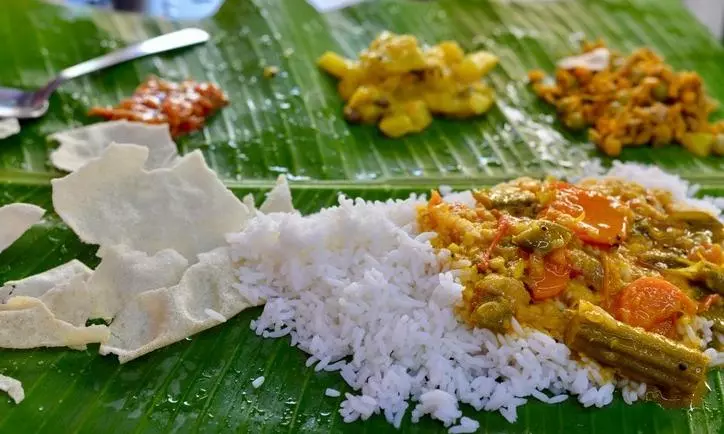
Food safety lapses spark concern in Tamil Nadu after outbreaks, deaths
Recent food poisoning incidents in Tenkasi, Virudhunagar highlight critical gaps in enforcing safety regulations at mass gatherings, catering events statewide

Recent food contamination incidents in Tamil Nadu have highlighted the need for effective and strict enforcement of food safety regulations at mass gatherings and large-scale catering.
In Tenkasi, three people died after consuming contaminated food, and in Virudhunagar, over 118 individuals were hospitalised following an outbreak.
However, these outbreaks are not rare. As per the state health department data, there are about 500-600 outbreaks reported every year.
Training for organisers
While there are regulations to obtain licences for food distribution and conduct Food Safety Training & Certification (FoSTaC) courses for the organisers, the lapses in food safety measures at such large-scale events are a concern.
Many caterers and event organisers say they are unaware of the regulations requiring a licence for social and cultural events or mass gatherings.
Also read | There's space for third force in TN but not in 2026 polls: CPI(M) state secretary
“We only have an FSSAI licence for the catering business but there are no specific checks given to us for private events. The servers we hire are college students and other part-time workers so it is difficult to train them as well,” Satish, a Chennai-based catering business owner, told The Federal.
It is not just food preparation; even improper food handling and wrong storage practices can lead to food contamination. Drinking water contamination is also reported to be one of the common causes behind these outbreaks, as was witnessed in an outbreak in Pallavaram last year, when three people died due to contaminated drinking water.
However, inspections and strict enforcement are required at all levels to prevent these outbreaks.
No specific guidelines
A private event organiser from Chennai, S Chandra, said her enterprise ensures food safety and hygiene measures at events, but there are no inspections or specific guidelines for these mass gatherings.
“The venue owners are expected to obtain all licences, and we comply with their instructions when preparing the food and serving it,” he added.
While the regulations remain in place, the enforcement seems to be lacking. To bridge this gap, the food safety department is also organising awareness campaigns across the state to educate the public on food safety protocols to prevent such incidents in the future.
“We are conducting mass public campaigns to create awareness among people to follow the food safety protocols in case of organising a mass gathering. Even in the case of social events such as weddings or private event celebrations, the venue owners, or event managers need to obtain the licence for the event and obtain training on conducting the event in a safe manner,” designated food safety officer M Jegadish Chandra Bose told The Federal.
Food safety measures
Additionally, the state health department has instructed district health officials and medical officers to ensure the monitoring of food safety measures and implementation at social and cultural events, recreational meets, political meetings and other mass gatherings managed by event organisers.
The Directorate of Public Health and Preventive Medicine issued instructions stating that in light of the increasing frequency and magnitude of public gatherings across Tamil Nadu-including religious congregations, social and cultural events, recreational programmes, and political meetings, it is imperative to enforce public health safeguards to prevent disease outbreaks, ensure sanitation, and protect public safety.
Also read | No TN student in top 10 NEET-UG rankings this year; experts explain why
Director of Public Health and Preventive Medicine Dr TS Selvavinayagam stated that about 500-600 outbreaks are reported every year and since gatherings are very huge in number with festivals, marriages, political meetings etc. being organised in almost every village, these are monitored at the block level. “The data is not collected at headquarters for all events but in case of outbreaks, the directorate is given the reports for appropriate action to be taken.”
Officials to keep watch
As per the Tamil Nadu Public Health Act, 1939, the health officers have been asked to supervise, inspect and enforce sanitation arrangements. The provision of safe drinking water and arrangements for waste disposal should be adequate.
The officials have also been asked to inspect and licence all food stalls and temporary eateries in coordination with the Food Safety Department to prevent the sale of substandard quality food.
While the event organisers provide potable water for drinking and cooking, the officials are instructed to inspect water sources and send samples for testing at Regional Water Laboratory (RWL) or District Public Health Laboratory (DPHL).

